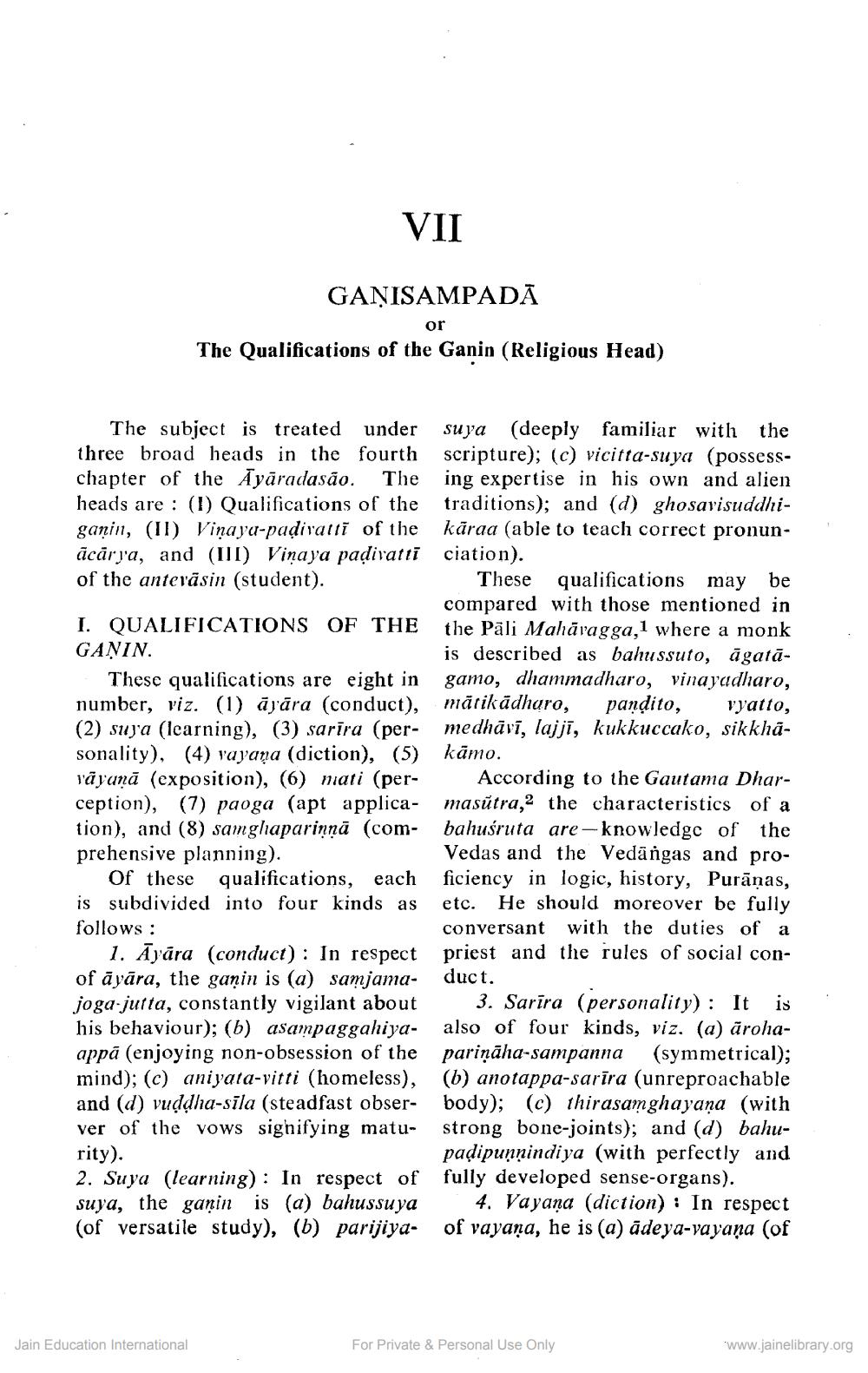________________
VII
GANISAMPADĀ
or
The Qualifications of the Ganin (Religious Head)
The subject is treated under three broad heads in the fourth chapter of the Дyāradasão. The heads are: (1) Qualifications of the ganin, (II) Vinaya-padivatti of the ācārya, and (III) Vinaya paḍivattī of the antevasin (student).
I. QUALIFICATIONS OF THE GANIN.
These qualifications are eight in number, viz. (1) āyāra (conduct), (2) suya (learning), (3) sarīra (personality), (4) vayana (diction), (5) vāyaṇā (exposition), (6) mati (perception), (7) paoga (apt application), and (8) samghaparinṇā (comprehensive planning). Of these qualifications, each is subdivided into four kinds as follows:
1. Ayara (conduct): In respect of ayara, the ganin is (a) samjamajoga jutta, constantly vigilant about his behaviour); (b) asampaggahiyaappā (enjoying non-obsession of the mind); (c) aniyata-vitti (homeless), and (d) vuḍdha-sīla (steadfast observer of the vows signifying maturity).
Jain Education International
2. Suya (learning): In respect of suya, the ganin is (a) bahussuya (of versatile study), (b) parijiya
suya (deeply familiar with the scripture); (c) vicitta-suya (possessing expertise in his own and alien traditions); and (d) ghosavisuddhikāraa (able to teach correct pronunciation). These qualifications may be compared with those mentioned in the Pali Mahāvagga,1 where a monk is described as bahussuto, āgatagamo, dhammadharo, vinayadharo, mātikādharo, pandito, vyatto, medhāvī, lajjī, kukkuccako, sikkhākāmo.
According to the Gautama Dharmasutra,2 the characteristics of a bahuśruta are-knowledge of the Vedas and the Vedängas and proficiency in logic, history, Purāņas, He should moreover be fully conversant with the duties of a priest and the rules of social conduct.
etc.
3. Sarira (personality): It is also of four kinds, viz. (a) ärohapariṇāha-sampanna (symmetrical); (b) anotappa-sarīra (unreproachable body); (c) thirasamghayana (with strong bone-joints); and (d) bahupadipunnindiya (with perfectly and fully developed sense-organs).
4. Vayana (diction): In respect of vayaṇa, he is (a) ādeya-vayaṇa (of
For Private & Personal Use Only
www.jainelibrary.org




